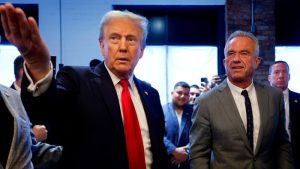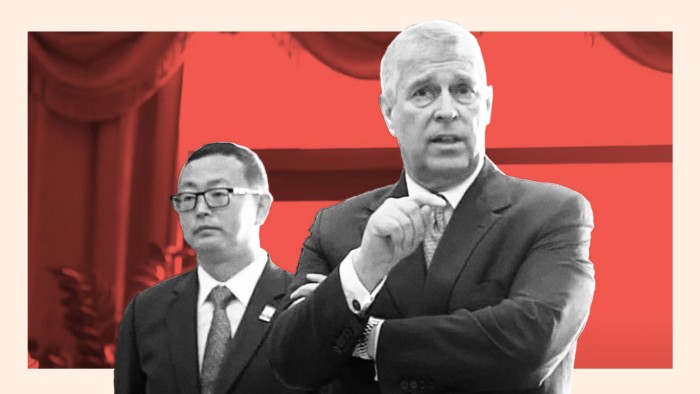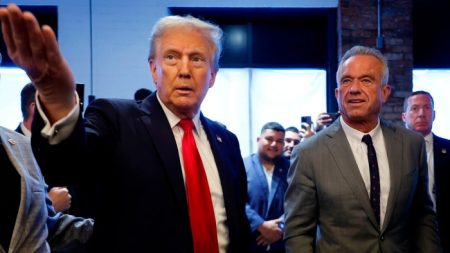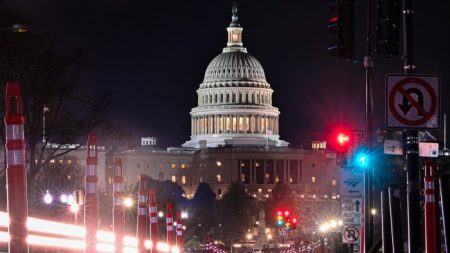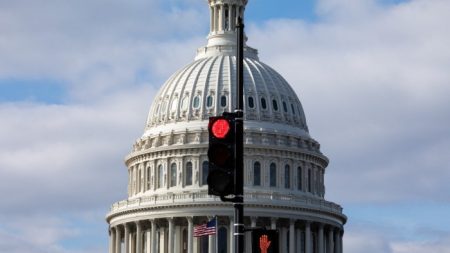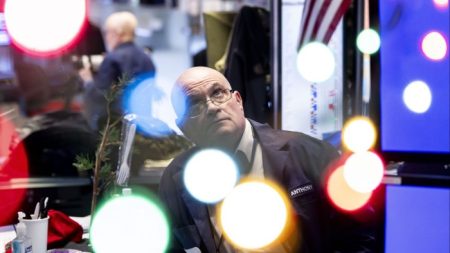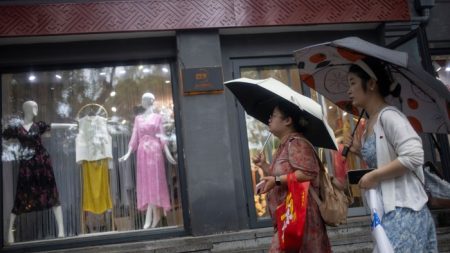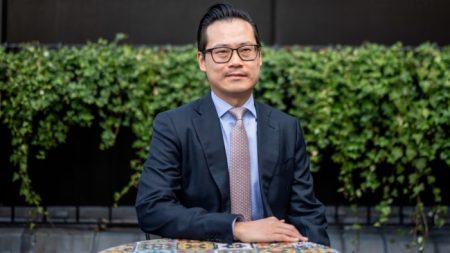Tengbo Yang, a Chinese man who became a confidant of the UK’s Prince Andrew, allegedly worked for a senior part of China’s hierarchy that Beijing calls “its magic weapon”. But this week in London, that weapon spectacularly backfired.
While the United Front Work Department, where UK intelligence agency MI5 alleges Yang worked, is regarded by Beijing as officially distinct from its espionage agencies, its overseas operations aim to win influence for China by using various methods — some open, some shadowy — to befriend and inveigle senior figures to serve its cause, analysts say.
Yang, a 50-year-old Chinese national banned from entering the UK on security grounds, was publicly named on Tuesday after a British judge lifted an anonymity order.
Separately on Tuesday, Christine Lee, a lawyer who was accused by MI5 of “political interference” in 2022, lost a legal challenge against the security services. Lee had made a large donation to Labour MP Barry Gardiner.
“Prince Andrew, Christine Lee and Barry Gardiner have done more in five days to push the issue of Chinese influence up the political agenda than MPs, the media and others have managed in five years,” said Charles Parton, a fellow at the Council on Geostrategy think-tank and a former UK diplomat in China.
“Useful idiots? You bet,” Parton added.
Alleged Chinese political influence cases touching the upper reaches of UK life have raised a set of uncomfortable questions for Sir Keir Starmer’s government, which is hoping to strengthen ties with China to boost economic growth and address common issues such as climate change.
China’s embassy in London warned the UK on Tuesday to “stop creating trouble”, and hit out at MPs’ “twisted mentality” over Yang’s case, which alleges that he developed business links with Prince Andrew and access to a network of other senior British and business figures.
An embassy spokesperson described the United Front as “beyond reproach” and a means to “promote . . . friendship with other countries”, and accused UK lawmakers of “arrogance and shamelessness”.
The United Front has long been known to operate overseas in the UK, US, and other western countries, but the organisation has a diverse agenda and thousands of people on its payroll, according to analysts. In addition to influencing foreign figures and the Chinese diaspora, it also conducts a vast set of domestic operations, including the “Sinicisation” of oppressed ethnic minority groups in Tibet and Xinjiang.
The organisation’s ultimate head is Wang Huning, Xi Jinping’s chief ideologue and propagandist who is a member of the seven-member ruling Politburo Standing Committee, the Chinese Communist party’s peak leadership body.
Wang also leads the Chinese People’s Political Consultative Conference, Beijing’s advisory body, which meets annually alongside the country’s rubber-stamp parliament. Analysts view the CPPCC as a paramount United Front organisation, bringing together important representatives of organisations and companies from inside and outside the party.
“It is crucial to ensure that the overall leadership of the Communist Party of China . . . is enhanced across all aspects and at every stage of United Front work,” Wang Huning told a United Front work conference in southern China in January.
Yang was an overseas delegate of the CPPCC and was featured in state media interviews, highlighting the significance of his work in the UK in Chinese propaganda.
While the United Front’s central mission is “to unite all forces that can be united” under the Communist party’s will and neutralise or weaken those cannot be won over, Beijing views the organisation as distinct from China’s espionage agencies, such as the Ministry of State Security, whose operations in China and abroad are largely secret.
In addition to the MSS, China’s Ministry of Public Security and military also conduct secret intelligence operations.
One sensitive area of United Front operations overseas is students. According to research last year by the Henry Jackson Society, a think-tank, there are more than 90 Chinese Students and Scholars Associations in the UK, which draw membership from among the roughly 150,000 mainland Chinese students at British universities.
But the report argued that CSSA were far from normal student societies. “The reality is that CSSAs are branches of a central CSSAUK, which is overseen by Chinese diplomats in the UK, and part of the United Front Work system of China,” it said.
Indeed, the report argued that the real role of CSSAs in the UK and in other countries was to challenge mainland Chinese students who hold views that dissent from Beijing’s orthodoxies, particularly over tensions in Hong Kong and Xinjiang.
“In the UK, individuals and organisations with clear and concrete links to the [UFWD] have been involved in technology transfer efforts, community surveillance, political influence and propaganda,” said Sam Dunning, director at UK-China Transparency, a campaign group.
But the amorphous nature of the United Front creates space for deniability while also casts suspicion on those who have contact with the organisation, no matter how tenuous those links may be.
Several current and former Chinese students in the UK told the Financial Times that by no means all members of CSSAs were actively involved in the United Front. “Only a small minority of students seemed to be interested,” said one former student at a top UK university, adding that it was “very easy to avoid the CSSAs’ attention”.
This obscurity in the United Front’s operations was also evident in some of the statements by the UK commission that ruled on Yang’s case.
It found that Yang “had been in a position to generate relationships with prominent UK figures and senior Chinese officials that could be leveraged for political interference purposes by the CCP . . . or the Chinese State”.
The judges further found there was “not an abundance of evidence of the UFWD links”, but noted an inconsistency between some of the evidence and Yang’s “claims that he had no connections to anyone in politics in China”.
In a statement this week, Yang did not directly refer to the United Front but insisted he had done “nothing wrong or unlawful” and that the concerns raised by the Home Office were “ill-founded”.
“The widespread description of me as a ‘spy’ is entirely untrue,” he said.
Read the full article here

